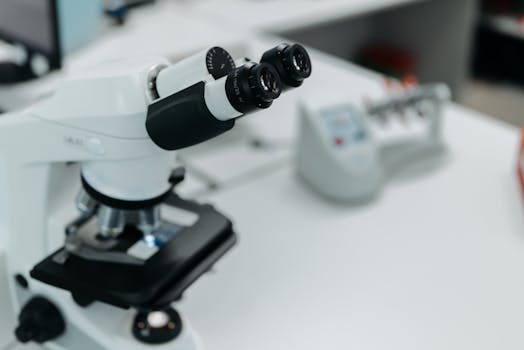Synthetic Biology Patents: Who Owns Lab-Created Life?
Welcome to the world of synthetic biology and lab-created life! This emerging field has taken the scientific community by storm, promising to revolutionize industries such as medicine, agriculture, and energy through the creation of new organisms with desirable characteristics. But with this groundbreaking technology comes a controversial aspect: synthetic biology patents. Who owns the rights to these lab-created life forms? Let’s delve into the complex world of synthetic biology patents and find out.
A Brief Introduction to Synthetic Biology
Synthetic biology is a field that combines principles from biology, engineering, and computer science to design and create new biological systems that do not exist in nature. By manipulating DNA sequences and genetic information, scientists can create living organisms with desired traits or functions for various purposes. This could include creating plants that are able to grow in harsh environments, engineering bacteria to produce valuable drugs, or designing cells that can detect and eliminate cancerous cells in the body.
The potential applications of synthetic biology are vast, with some experts predicting that it could be the key to solving many of the world’s biggest problems. However, as with any emerging technology, there are concerns about its impact on society and the ethical considerations surrounding the creation of new life forms.
The Rise of Synthetic Biology Patents
As with any scientific breakthrough, the commercial potential of synthetic biology has not gone unnoticed by companies and entrepreneurs. To protect their investments and have exclusive rights to the technology, many organizations have been filing patents for their synthetic biology inventions.
A patent is a legal document that grants the owner exclusive rights to make, use, and sell their invention for a designated period of time. In the case of synthetic biology patents, this could involve genetically modified organisms (GMOs) or other synthetic biological systems. These patents can cover a wide range of inventions, from individual genes and genetic sequences to entire biological pathways and processes.
Synthetic biology patents have been on the rise in recent years, with major companies such as Monsanto, DuPont, and Novartis leading the way. According to a study by the Synthetic Biology Project, more than 32,000 patents related to synthetic biology have been granted or applied for worldwide since 2000.
The Controversy Surrounding Synthetic Biology Patents
While patents can provide a significant financial incentive for companies to invest in research and development, they have also sparked controversy within the scientific community. Opponents argue that granting patents for synthetic biology inventions goes against the original intention of patents, which is to promote innovation for the greater good. By allowing companies to have exclusive rights to these inventions, critics say that it inhibits scientific progress and limits access to important technologies.
Another concern is the potential for monopolies to be created in the synthetic biology industry. With large companies holding patents to key technologies, smaller companies and startups may struggle to enter the market and compete. This could stifle innovation and limit the potential benefits of synthetic biology for society.
Who Owns Lab-Created Life Forms?
So, who ultimately owns the rights to these lab-created life forms? The answer is not a simple one. In general, the person or organization that holds the patent for a particular invention has the legal right to control and profit from it. However, in the case of synthetic biology, the concept of ownership becomes more complex.
Firstly, it is important to note that synthetic biology patents do not mean ownership of all life forms. Living organisms are not patentable, so companies cannot claim ownership of the actual organism or its genetic sequence. Instead, patents for synthetic biology inventions cover the specific modifications or manipulations made to the organism’s genetic code.
Additionally, there are several legal and ethical questions surrounding the creation and ownership of GMOs. For example, if a company genetically modifies a plant, do they own the plant, or does the original organism still hold some level of ownership? There is no clear answer to these questions, and it is an ongoing debate in the scientific and legal communities.
The Future of Synthetic Biology Patents
As the field of synthetic biology continues to advance, so too will the number of patents being granted for related inventions. This will undoubtedly lead to more debates and discussions about the implications of synthetic biology patents on both the scientific community and society as a whole.
In recent years, there have been efforts to limit the number of patents granted for synthetic biology inventions. For example, some countries have adopted laws that prohibit patents on specific GMOs, particularly those that have been derived from natural sources without significant modifications.
Ultimately, the future of synthetic biology patents will depend on how society chooses to regulate and govern this emerging technology. As with any new advancement, it is important to strike a balance between promoting innovation and protecting the public interest.
Conclusion
Synthetic biology patents are a hot topic in the scientific community, with valid arguments on both sides. While they can incentivize companies to invest in research and development, they also raise concerns about the control and accessibility of important technologies. As synthetic biology continues to evolve, it is crucial to carefully consider the implications of patents and find a balance between promoting innovation and protecting the greater good.
Sources:
- Synthetic Biology Project. (2020). Synthetic Biology – Patents. https://www.synbioproject.org/topics/patents/
- Swan, J. (2017). Synthetic Biology: The Cultural Politics of Patenting Life. University of Washington Press.
- Woodhouse, E. J. (2018). Who Owns Synthetic Life? Ethics and Synthetic Biology. Springer.








